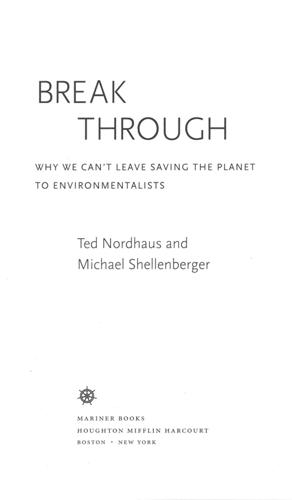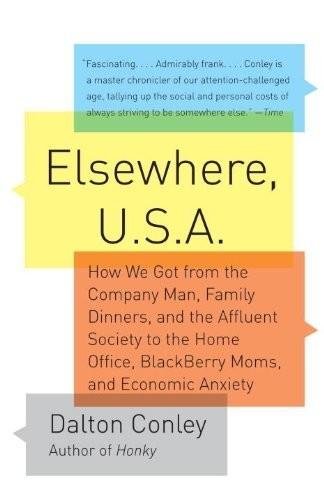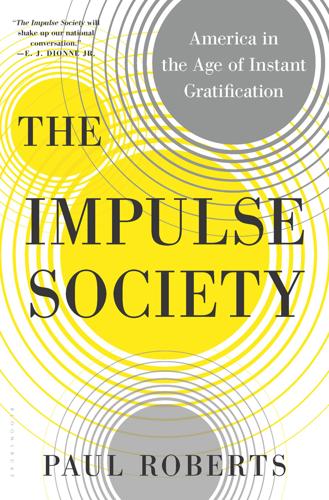
Break Through: Why We Can't Leave Saving the Planet to Environmentalists
by
Michael Shellenberger
and
Ted Nordhaus
Published 10 Mar 2009
See also new politics limits approach and, 15–17, 187 postmaterial needs and values, 187, 191–92, 249 prosperity and, 15–16, 269–71 Rorty and, 210 postmaterial values and needs. See also inner-directed needs; insecure affluence; outer-directed values baby boomers and, 254–56 conservative power and, 158–60 development in Brazil and, 50–52 evangelicals and, 189–91, 198–200, 207 historical progressive movements and, 193 insecure affluence and, 14–15, 39–40, 171–75 liberal politics and, 207–9 Maslow’s hierarchy and, 5–7, 27–28, 29 material values and needs and, 27–28 new politics and, 160–62 new social contract and, 175–80 politics of possibility and, 187, 191–92, 249 poverty.
…
See also economic insecurity; environmental justice groups; health care reform in Brazil, 43–45, 48–50, 55 ecological concerns and, 37, 51–52, 75–76, 81–82 health care and, 78–80, 86–88 1960s policies and, 164–65 obesity and, 169–71 survival values and, 35–36 Terborgh’s views on, 303 (n69) pragmatism definitions of species and, 316 (n8) dictatorship debt and, 235–37 essentialism and, 219–22 global warming narratives and, 222–25 ideological constructs and, 230–35 interest-based advocacy and, 225–30 narratives and, 216–17 new politics and, 237–40 as philosophical tradition, 217–19 Prakash, Swati, 81 preparedness approach, 119, 223–25, 248 progressive social movements decline of, 159, 185–87, 193–96 period following 1993 and, 167–69 postmaterial values and, 164, 193 Promise and Peril of Environmental Justice, The (Foreman), 68–70 prosperity as cause of environmental problems, 35–37 compassionate action and, 200 decline of social capital and, 194–96 ecological concerns and, 6–7, 27–28, 269–71 environmental accomplishments and, 29–31 innovation and, 15–16 link between higher postmaterialist values and, 35–37, 164–65, 167, 177–80 new social contract and, 177–78 new vision of, 269–71 obesity and, 169–71 origins of insecure affluence and, 165–67 politics of possibility and, 15–16, 269–71 postwar optimism and, 161–62, 163–65 rise of insecure affluence and, 167–69 wealth in Brazil and, 44–45, 46 Protestant ethic, 247, 249 public education, 209 public health research, 82–83 public opinion. See also voter priorities attitudes toward immigration and, 168–69 Brazilian concerns and, 64–65 impact of Gore film and, 107–8 public/private distinction, and politics, 207–9 Purpose-Driven Life, The (Warren), 198–201, 214 Putnam, Robert, 195–96 Putting People First agenda (Clinton presidency), 260–61 R “reality-based community,” 241–43 regulatory efforts, as insufficient, 118–19, 258.
…
See also baby boomers smog, 23–24 smoking, and health, 72–75 social capital, 195–98 social change, 111, 160, 193–94, 218–19 social context, and social values, 87–88, 162, 166–67 social insecurity. See economic insecurity; insecure affluence; status insecurity social psychology research, 150, 222, 307 (n30) social safety net, demise of, 172, 175, 177 social values. See also ecological concerns; postmaterial values and needs authoritarianism and, 35–36 change in social context and, 162, 166–67 Environics survey and, 33 insecure affluence and, 14–15 move to postmaterialist values and, 161–62 needs and, 6–7 new social contract and, 175–80 prosperity and, 244–45 quest for self-creation and, 209–11 role of history in shaping of, 33–35 status insecurity and, 168–69, 184–85 Sociovision (research firm), 315 (n43) Sorkin, Aaron, 258 species, definitions of, 316 (n8) State of Fear (Crichton), 139–40 status insecurity.

Elsewhere, U.S.A: How We Got From the Company Man, Family Dinners, and the Affluent Society to the Home Office, BlackBerry Moms,and Economic Anxiety
by
Dalton Conley
Published 27 Dec 2008
.: Princeton University Press, 1977). See also Ronald Inglehart, “The Silent Revolution in Post-Industrial Societies,” American Political Science Review 65 (1971): 991-1017. Ted Nordhaus and Michael Shellenberger elaborate on Inglehart’s concept in their book Break Through to suggest that we now live in a condition of “insecure affluence.” See, Ted Nordhaus and Michael Shellenberger, Break Through: From the Death of Environmentalism to the Politics of Possibility (New York: Houghton Mifflin, 2007). 2. Fred Hirsch, The Social Limits to Growth (London: Routledge & Kegan Paul, 1976). 3. Hirsch paraphrased in Robert L. Heilbroner, “The False Promise of Growth,” New York Review of Books 24 (1977):10-12. 4.

The Impulse Society: America in the Age of Instant Gratification
by
Paul Roberts
Published 1 Sep 2014
As prosperity faltered, we now found ourselves in a paradoxical position. Most Americans were still much wealthier than their grandparents had been. But our ascent had stopped: we could no longer count on advancing economically as rapidly as those earlier generations had. Many of us had entered what Ted Nordhaus and Michael Shellenberger have called a state of “insecure affluence,” where our material needs were still largely met, but our desires for better status, or more self-esteem, or other postmaterial aspirations, were being thwarted, which left us angry, anxious, and ready to blame someone. And yet, while such anger and anxiety, twenty years earlier, might have motivated us to take political action, the current culture pushed us in another direction.